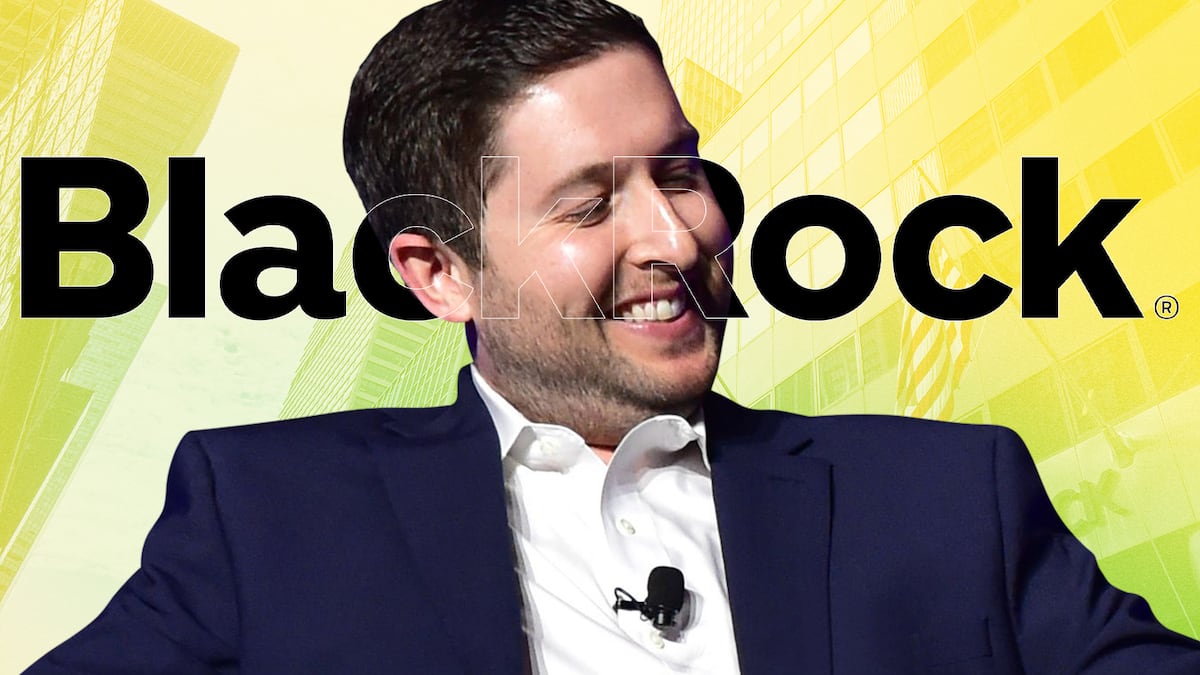- BlackRock's BUIDL fund is highly concentrated.
- Private equity giants are moving into the space.
- It's early days, says Securitize exec Michael Sonnenshein.
There’s no doubt BlackRock’s debut tokenised fund is off to a fast start.
The BUIDL fund, comprising crypto versions of cash and US Treasury bonds, has ballooned to more than $2.5 billion since its launch in 2024.
But almost 80% of its assets are held in just four crypto wallets — two of which belong to the same DeFi protocol, according to onchain data.
The lack of investors begs the question: are tokenised assets, after years of promotion, still not catching on?
Michael Sonnenshein, the chief operating officer of BlackRock’s tokenisation partner Securitize, said there’s a simple reason for the high concentration in the fund.
“It’s a $5 million minimum investment. It’s an institutional product,” he told DL News. “Institutional products onchain or in traditional formats aren’t really about democratising access.”
BlackRock whales
Wallets linked to the stablecoin outfit Ethena make up $1.3 billion of the fund, followed by Maker Protocol’s lending arm, Spark, which holds another $500 million.
The fourth-largest holder at $140 million is the Crypto Relief Fund, a venture launched by Polygon co-founder Sandeep Nailwal to raise funds for charities during the Covid-19 pandemic in 2021.
To be sure, the era of tokenisation, the process of putting stocks and bonds on the blockchain, has arrived.
The issue is that the proposition just isn’t widely distributed.
As early as 2017, crypto firms have touted blockchain technology as a speedy and low-cost alternative to traditional asset issuance and trading. The sector was worth less than $25,000 in 2018.
But it wasn’t until last March when BlackRock, the world’s top investment firm with $13 trillion in assets under management, entered the market with Securitize that investor interest truly escalated.
Now the market is worth more than $18 billion, according to data from RWA.xyz.
And private equity stalwarts such as Apollo Global Management and KKR are tapping Securitize to roll out tokenised funds.
“In the early days, there was no BlackRock, there was no Apollo, there was no KKR,” said Sonnenshein, the former CEO of Grayscale Investments.
But as BlackRock’s tokenised fund reveals, it’s been slow going to win over mainstream acceptance.
It isn’t for lack of trying.
BlackRock CEO Larry Fink has been a tireless advocate for tokenisation.
In his annual letter to investors in March, Fink said tokenisation opens access to notoriously exclusive investments such as private real estate and equity to a much wider investor base.
Sonnenshein, also pointed to Securitize’s private credit funds as offering unique investments to smaller investors.
‘First inning’
Still, the Securitize’s tokenised feeder for the Apollo credit fund has a $50,000 investment requirement and is only available to investors with a net worth of $1 million or more.
The Hamilton Lane fund, which has a $10,000 investment requirement, is also only available to qualified purchasers or investors with $5 million or more in assets.
This is progress, said Sonnenshein.
Typical investment requirements for traditional private credit deals can be, after all, laborious affairs with brokers and often demand a minimum investment of $250,000.
It’s natural for new offerings such as these to get started with sophisticated investors before moving into the mainstream.
“We’re at the bottom of the first inning,” Sonnenshein said.
Corrected on April 25: A previous version of this article reported that the Hamilton Lane Private Credit Fund had an investment minimum of $20,000. It is $10,000.
Liam Kelly is a Berlin-based reporter for DL News. Got a tip? Email him at liam@dlnews.com.


